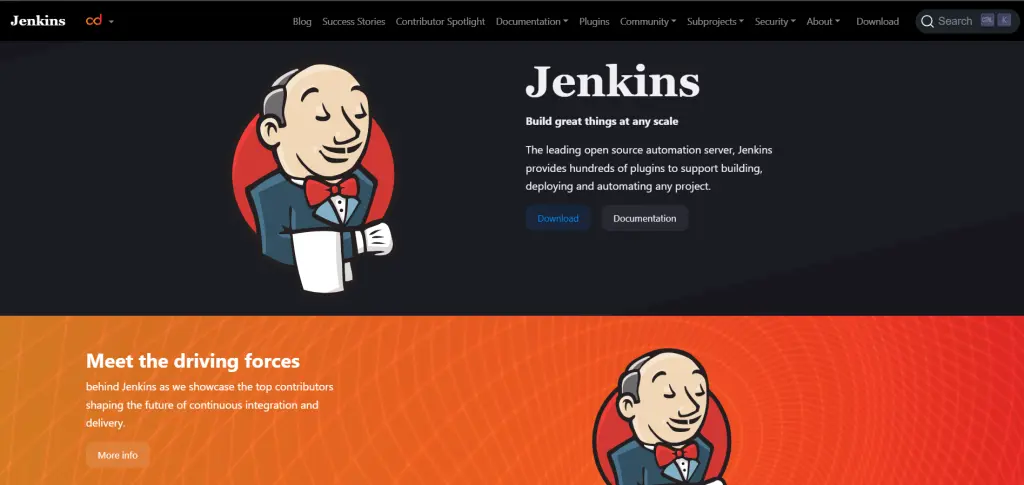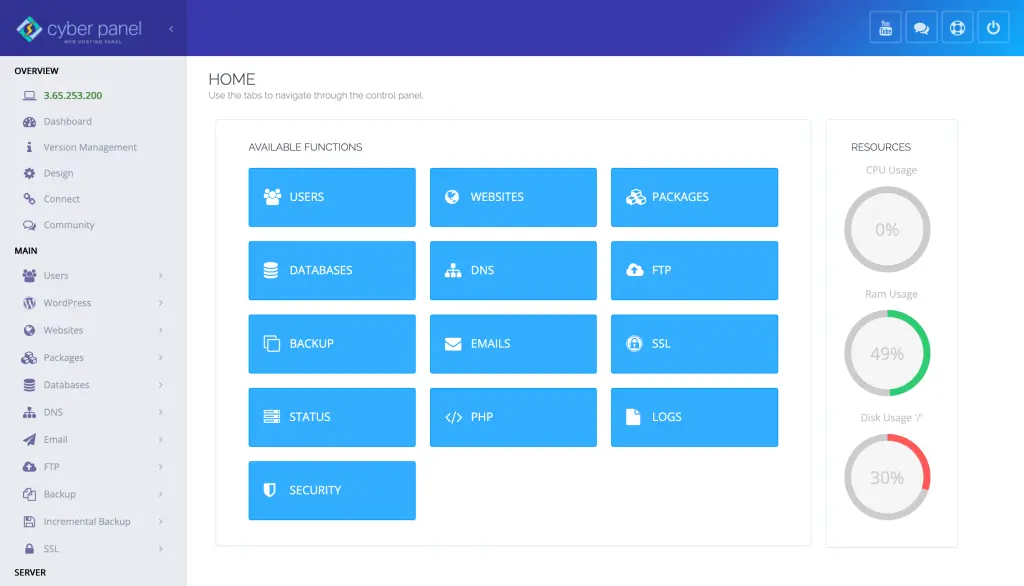Automation is the answer to the challenges in a day’s work for Software Development. Can you even imagine testing, building, and deploying software all by hand? That’s where Jenkins comes into play. So, what is Jenkins? Jenkins is a popular automation server that allows developers to implement Continuous Integration (CI) and Continuous Deployment (CD) for their applications and deliver software more quickly and without errors.
Jenkins is an open-source, highly extendable, widely-adopted tool in DevOps pipelines. This makes it easy to work with a wide variety of tools and technologies, which is why developers everywhere turn to it. If you are in any way new to Jenkins or want to know more about it or need some more details, this will help guide you from knowing what Jenkins is to knowing how to use it in practice.
What is Jenkins Software?
Jenkins is an open-source automation server, and it is written in Java. It makes building, testing, and deploying software applications easier for developers. Jenkins is based on a CI (Continuous Integration) (a practice where programmers will develop, integrate, and test code and deploy updates in a collaborative manner, especially on tweet projects) and a CD (Continuous Deployment) model.
What is Jenkins Continuous Integration? Jenkins Continuous Integration (CI) is the practice of automating the integration of code changes from multiple contributors into a shared repository. Jenkins ensures that every code change is tested and built automatically, reducing integration conflicts and enabling faster development cycles.
Key Features of Jenkins
- Automated Builds: Jenkins can automatically compile, package, and build the Software Applications.
- Continuous Integration: It helps integrate code changes from multiple developers to reduce conflicts.
- Continuous Deployment: Automates software deployment to production environments.
- Extensible: More than 1,800 plugins available.
- Scalability: Capable of distributed builds across multiple machines.
- Cross-Platform Support: Windows, Linux, and macOS.
What is Jenkins Used For?
Jenkins is widely used for:
- Automated Testing: Execute unit, integration, and functional tests against software.
- Building and Compiling Code: Automate the compilation process for Java, Python, Node.js, and other languages.
- Deploying Applications: Push applications to production with zero downtime.
- Monitoring Software Health: Detect issues in code before deployment.
- Managing Infrastructure as Code (IaC): Automate infrastructure deployments with Terraform, Ansible, or Kubernetes.
How Jenkins Works

Jenkins runs on pipelines. It defines a series of tasks to run. One of the base concepts of a Jenkins pipeline is stages and steps that control the CI/CD process.
Get exclusive access to all things tech-savvy, and be the first to receive
the latest updates directly in your inbox.
Installing Jenkins
To install Jenkins on Ubuntu:
sudo apt update
sudo apt install openjdk-11-jre -y
wget -q -O - https://pkg.jenkins.io/debian/jenkins.io.key | sudo apt-key add -
echo "deb http://pkg.jenkins.io/debian-stable binary/" | sudo tee /etc/apt/sources.list.d/jenkins.list
sudo apt update
sudo apt install jenkins -yTo start and enable Jenkins on startup:
sudo systemctl start jenkins
sudo systemctl enable jenkinsAccess Jenkins at:
http://localhost:8080Jenkins Pipeline Tutorial: How to Create a Simple Pipeline
The Jenkins pipeline can be defined in a Jenkinsfile:
pipeline {
agent any
stages {
stage('Build') {
steps {
echo 'Building the application...'
}
}
stage('Test') {
steps {
echo 'Running tests...'
}
}
stage('Deploy') {
steps {
echo 'Deploying the application...'
}
}
}
}Role of CyberPanel in Jenkins

CyberPanel is a powerful web hosting control panel based on OpenLiteSpeed. CyberPanel does not have a direct integration with Jenkins, but you can use CyberPanel to host and deploy applications that are managed by Jenkins.
- Jenkins Applications Deployment: Deploy web applications created using Jenkins pipelines on servers managed by CyberPanel.
- Deployment Automation: Based on Git integration in CyberPanel.deploying Jenkins-built projects becomes easy.
- Managing Databases: Applications such as Jenkins, where MySQL or PostgreSQL is required, can be managed using CyberPanel.
- Security: You can protect your Jenkins deployments with CyberPanel’s SSL management and firewalls.
FAQs About Jenkins
1. What is Jenkins used for?
There are many types of components available and Jenkins is one tool that is now being utilised in the automation of the software development process, covering the development, test, and deployment processes.
2. Is Jenkins free to use?
Yes, Jenkins, as an open-source tool, is fully free to use.
3. What is Jenkins Pipeline?

Jenkins pipeline is a series of stages and steps for CI/CD automation.
4. What is Jenkins CI?
Jenkins CI refers to the use of Jenkins as a Continuous Integration tool, where it automates tasks like code building, testing, and deployment. It helps developers identify issues early by running automated tests after every code commit, improving software quality and development efficiency.
Wrapping Up!
Finally, we got ‘what is Jenkins?’ As development teams strive for more efficient, automated software delivery, Jenkins is THE go-to tool. Jenkins can be a major time-saver, no matter if you are a developer, DevOps engineer, IT manager, or just someone who manages a lot of apps.
Ready to revolutionize your DevOps? Install Jenkins now and configure it using CyberPanel to manage and deploy applications easily!



